Trauma is the response to a disturbing or stressful event that challenges a person’s sense of safety and security and overwhelms their ability to cope. The body’s natural fight or flight response is activated during a traumatic event, leading to various physical and emotional reactions. For most, the symptoms of trauma ease over time as the mind processes the event. Still, the brain gets “stuck” in the trauma for some, which can contribute to numerous mental health issues.
When trauma is not addressed and properly treated, it can have devastating effects. At Athens Recovery, we recognize the importance of a trauma therapy program for a successful recovery for our clients and their families. We provide comprehensive trauma therapy in a safe, welcoming environment. Call 844.959.4998 to learn more about our programs.
Three Significant Trauma Therapy Benefits
Traumatic events can happen to anyone at any time. Individuals who have previously been traumatized are more likely to experience new trauma. The far-reaching effects vary based on the trauma’s nature and severity. Many experts believe that personality traits and other risk factors can influence the development of trauma.
Many individuals with unresolved trauma frequently turn to drug and alcohol use to self-medicate or cope with their emotional and mental duress, creating a chain reaction of substance abuse, dependence, and addiction, which can exacerbate trauma symptoms.
A trauma therapy program offers numerous benefits. These include:
- Trauma resolution and healing – Trauma therapy helps clients process and resolve the psychological and emotional impacts of traumatic experiences by providing a safe, supportive environment where they can explore their thoughts, feelings, and memories related to the trauma.
- Symptom reduction – Trauma therapy effectively reduces symptoms of trauma-related conditions, including anxiety, depression, and PTSD. In addressing the root causes of symptoms, clients can regain a sense of control over their thoughts, emotions, and behaviors, resulting in improved overall well-being.
- Improved coping skills – Trauma therapy equips clients with numerous coping strategies and emotional regulation skills to manage triggers and stress responses better. With enhanced skills, clients become more resilient and can address future challenges without becoming overwhelmed.
Other significant trauma therapy benefits include improved relationships, increased self-confidence and self-esteem, and preventing future complications.
How Can Trauma Therapy Help?
Trauma therapy often utilizes a holistic approach that addresses the emotional, mental, physical, and spiritual aspects of healing. Through trauma therapy, clients can develop a new narrative about their trauma that empowers them and emphasizes their resilience and strength.
Trauma therapy programs may utilize trauma-informed therapy, trauma-focused therapy, or both.
Trauma-informed therapy looks like:
- Goal – Creating a safe and supportive environment that promotes healing, well-being, and empowerment without necessarily delving deeply into the trauma itself.
- Approach – Emphasizes building trust and establishing a sense of safety for the client while acknowledging the prevalence and effects of trauma.
- Techniques – These may include psychoeducation, mindfulness, relaxation techniques, and fostering a sense of choice and control for the client.
- Scope – Used in a wide range of therapeutic settings and may not require trauma-specific training.
On the other hand, trauma-focused therapy involves:
- Goal – Specifically designed to address the emotional and psychological impacts of traumatic experiences, with the primary purpose of helping clients process and heal from the trauma by addressing it directly.
- Approach – Utilizes structured and evidence-based therapies, including cognitive-behavioral therapy (CBT), eye movement desensitization and reprocessing (EMDR), and prolonged exposure therapy, to directly target traumatic memories and reduce their impacts.
- Techniques – Cognitive restructuring, desensitization, exposure therapy, and more help clients confront and reprocess traumatic events.
- Scope – Used when trauma is the primary focus of treatment and requires specialized training and expertise in trauma treatment.
The choice between these approaches is typically based on the client’s needs, the severity of the trauma, and the therapist’s level of training. However, in comprehensive treatment programs, both are commonly used.
Call Athens Addiction Recovery Center Today
Experiencing trauma can make it challenging to move forward, and unresolved trauma can be a barrier to effective treatment and lasting recovery. At Athens Recovery, our trauma therapy program aims to help clients confront and heal from past trauma to embrace a life of sobriety and well-being. Call 844.959.4998 or reach out online to learn how we can help you or your loved one.

